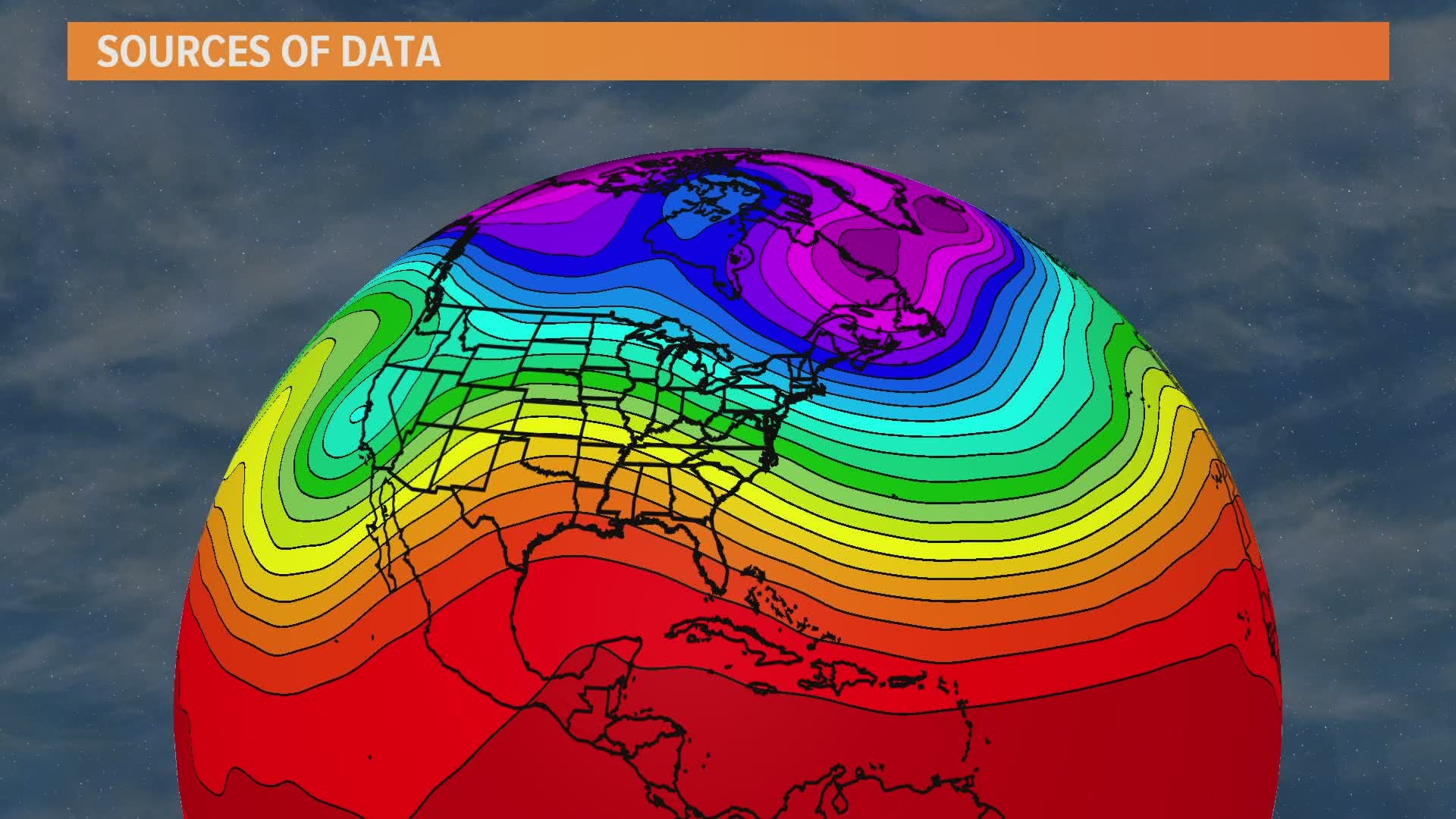PORTLAND, Maine — Here’s something you’ve probably never realized – when you’re on an airplane, it’s sending valuable weather data to computer models used to predict the future.
It’s no secret we use these models - including the American GFS, the European ECMWF, every day to guide our forecasts.
But they are only as good as the current weather data going into them. They rely on many sources of data to get the "starting point" as close to accurate as possible, including satellites, airplanes and weather balloons.
The data collected goes into the models as the “starting point”. The farther the starting point is off, the future projection will be off, as equations are run to model the future atmosphere.
The coronavirus pandemic has had a real impact on the amount of data being collected by aircraft, as fewer planes take flight.
According to the European Centre for Medium Range Weather Forecasts (ECMWF, often referred to as "the Euro,") data collected by aircraft over the United State has dropped by about 63 percent. While that is staggering, there are still some flights traveling common routes each day, within the country.
The drop in data collected over Europe has been even more severe, as international travel has come to a halt.
The World Meteorological Organization issued a press release on April 1 outlining similar concerns, as other countries lack the vast observing networks we have.
So what does this mean for your forecast?
The impact isn't tangible yet, but ECMWF says they expect the biggest impact to be at the polar jet stream level. Since the jet stream is the current that steers our storms, that means there could be a notable difference in storm forecasts, days out especially. The "chaos theory" suggests small errors at the starting point of a model grow rapidly and affect predictability down the line.
It's our role as human forecasters to recognize this, use our intuition and knowledge to develop a forecast.

